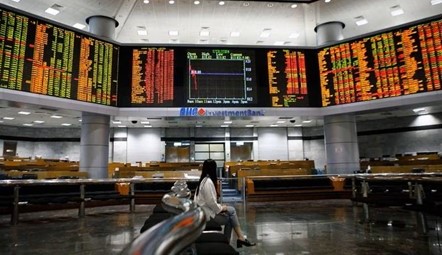
Traders Concerned About the Impact of Interest Rates on Inflation
Asian stock markets faced a day of decline, marked by anticipation around the Federal Reserve’s next policy decision. Investors are betting that interest rates will remain elevated for an extended period of time with the aim of containing inflation.
Declines in Asian Markets
The MSCI Asia Pacific Index fell 0.8 percent, while the MSCI Emerging Markets Index fell 0.5 percent. The Japanese market, represented by the Topix, suffered a decline of 1.00 percent, and Australia’s S&P/ASX 200 fell 0.46 percent. Hong Kong and Shanghai also experienced declines in their respective indices, with the Hang Seng down 0.62 percent and the Shanghai Composite down 0.52 percent. On the other hand, South Korea’s Kospi posted a slight rise of 0.02 percent.
Focus on the Federal Reserve and Inflation
Attention is turned to the Federal Reserve, where Chairman Jerome Powell and his colleagues are expected to announce their decision to hold rates at the next meeting. However, a dilemma arises for the central bank due to supply shocks, such as rising oil prices, which can boost inflation while curbing economic growth. It’s important to remember that rising energy costs played a crucial role in the U.S. recessions of the 1970s, 1980s, and 1990s.

Rate Projections and Future Prospects
In addition to the Fed’s stance, investors will be watching updated quarterly rate projections, known as the “dot plot,” to be released at the end of the policy meeting. One point of interest will be whether these projections continue to indicate a more than a quarter-point increase in rates this year, and whether the outlook for 2024 lowers the 100 basis point rate cut that had been forecast in June.
Federal Reserve Outlook
Julien Lafargue, chief market strategist at Barclays Private Bank, expressed his view that the prevailing risk is to the upside. Lafargue suggests that the Federal Reserve could choose to reinforce its message about maintaining high interest rates for an extended period.

Stability in the Foreign Yuan and Lending Rates in China
In the Asian context, the offshore yuan saw minimal changes after the People’s Bank of China reaffirmed its commitment to crack down on any behavior that disrupts the foreign exchange market. In addition, Chinese lenders opted to keep the preferential rates on one- and five-year loans unchanged, the latter being a benchmark for mortgages. This decision came after the central bank’s recent resolution to keep rates steady, while officials assess the economic impact of existing stimulus.
For more articles like this, click here.









